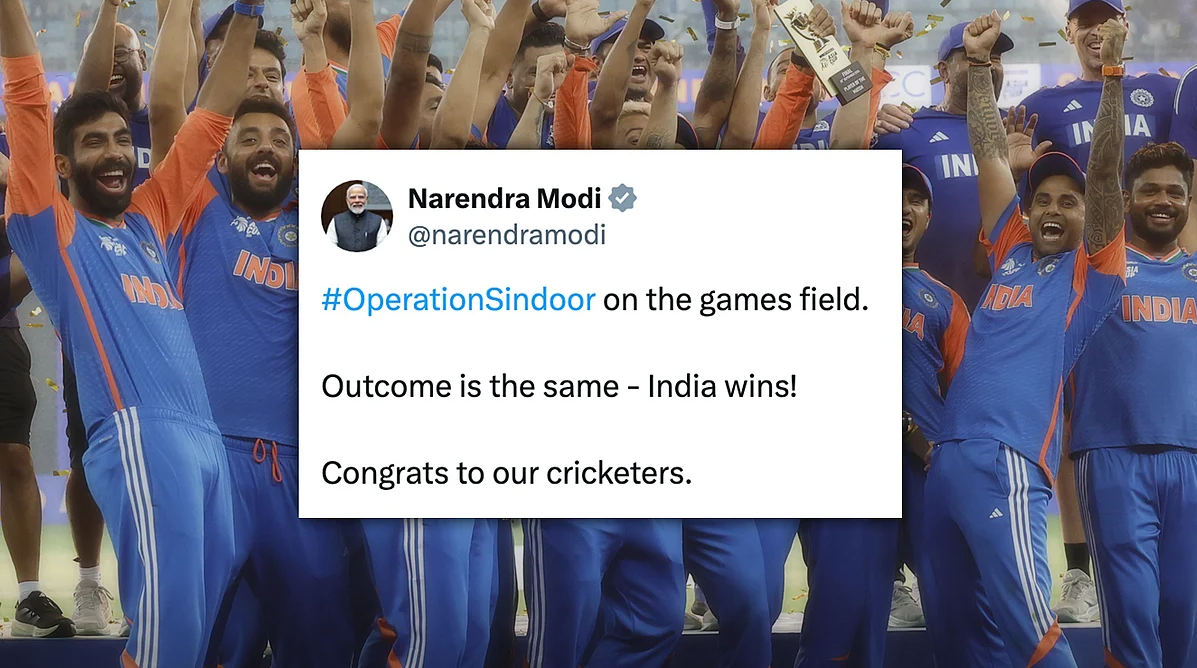New Delhi-Islamabad rivalry continues while the US gets rare earths
After India's victory in cricket at the Asia Cup, Prime Minister Narendra Modi celebrated the sporting success by comparing it to Operation Sindoor, the military offensive India launched against Pakistan in the wake of a terrorist attack in Pahalgam. The fighting that followed in May was halted thanks to US mediation, which India, however, denies accepting. While US-Indian relations remain tense, the United States is boosting its ties with Pakistan by signing two memoranda on precious minerals.
New Delhi (AsiaNews) – To celebrate the victory of India’s cricket team in the final of the Asia Cup, Indian Prime Minister Narendra Modi compared it to the military conflict with Pakistan that nearly led to outright war between the two South Asian neighbours in early May this year.
“#OperationSindoor on the games field. Outcome is the same - India wins! Congrats to our cricketers,” wrote the prime minister on his X account.
India launched Operation Sindoor against Pakistan in response to a terrorist attack in Pahalgam, in Indian-controlled Kashmir, which killed 22 people, mostly Indian tourists.
Prime Minister Modi immediately accused Pakistan of being behind the attack. Fighting halted after four days thanks to US mediation but more than 70 people died in the violence.
India, however, denies that the United States played a role in ending the conflict, while Pakistan has proposed nominating Trump for the Nobel Peace Prize.
Since then, tensions have not subsided.
Cricket has always been a political battleground between the two South Asian countries. During the event, Indian players refused to shake hands with their Pakistani counterparts.
After the match, held at the Dubai International Cricket Stadium, the Indian team refused to collect the trophy, which was presented by Asia Cricket Council president Mohsin Naqvi, who heads the Pakistan Cricket Board and serves as Pakistan's federal Minister of the Interior.
In a tweet, Modi had rejected US President Donald Trump's recent claims that he had ended seven "endless wars”.
Since the May confrontation, relations between Modi and Trump have progressively cooled. New Delhi has repeatedly reiterated that India and Pakistan had reached an agreement, while Washington tried to take credit for preventing the outbreak of a nuclear conflict.
The subsequent imposition of 50 per cent tariffs on India (while the tariff on Pakistan is 19 per cent) drove the two leaders further apart.
By contrast, the United States and Pakistan have become closer. Chief of the Army Staff Marshal Asim Munir, travel to the US capital recently, accompanying Prime Minister Shahbaz Sharif.
According to some reports, the two showed Trump a box of rare earths, which the White House did not refer in any statement.
“This isn’t just about rocks in the ground. It is about who controls the future’s building blocks. For Pakistan, it’s a chance to claim its mineral narrative and tie it to national pride and legacy. For the US, it’s a strategic move on the global chessboard of resource politics,” a former high-ranking Pakistani army office told Al Jazeera on condition of anonymity.
On 8 September, two memoranda of understanding (MoUs) were signed whereby Pakistan would supply minerals and rare earths to the United States.
This provides for cooperation between the Frontier Works Organisation, a branch of the Pakistani army that is led by a two-star general, and United States Strategic Metals, a Missouri-based company set up in 2018 to recycle rare earths and mine minerals, which pledged to make a US$ 500 million investment in Pakistan.
According to Sharif's office, the partnership will immediately begin exporting easily available minerals, such as antimony, copper, gold, and tungsten, which are, however, found in Balochistan and Khyber Pakhtunkhwa, provinces where violence and instability have increased considerably since the Taliban took power again in Afghanistan in 2021, following US pullout.
In Balochistan in particular, an armed insurgency against Islamabad's exploitation of local resources has been ongoing for decades and in recent months insurgent groups have shown that they can be extremely violent.
25/11/2022 11:46







.png)










